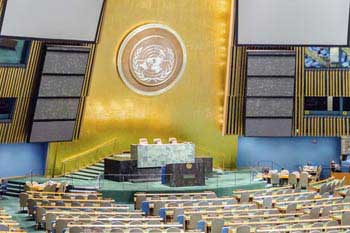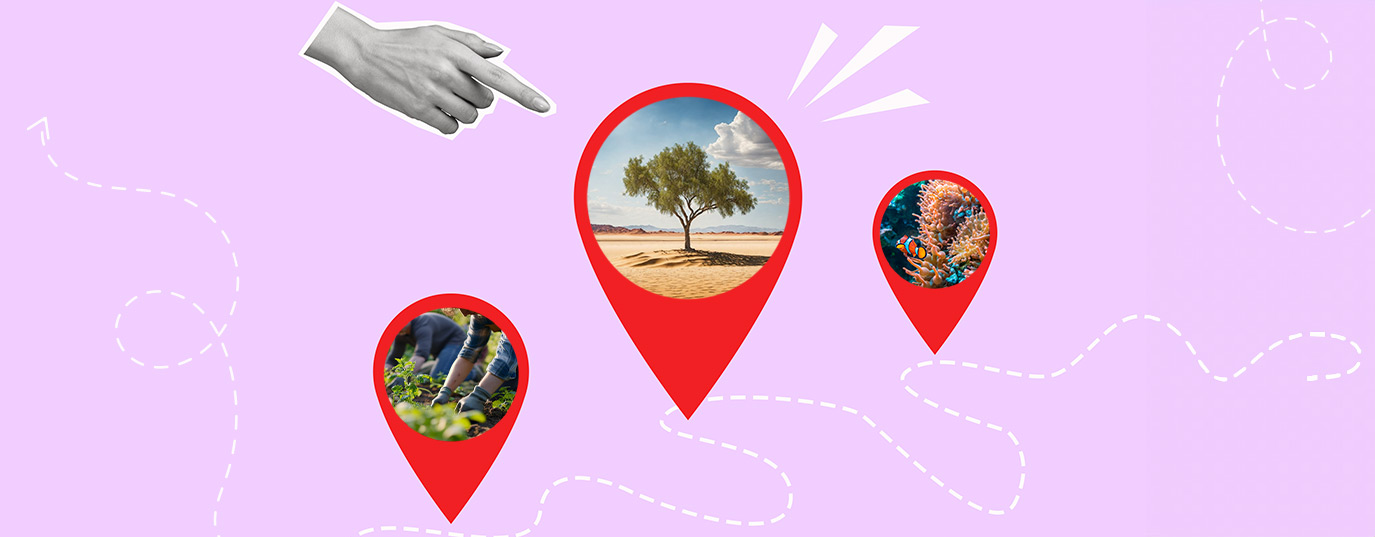The alliance between Artificial Intelligence and sustainable development
Discover how Artificial Intelligence and sustainability can go hand in hand to tackle the challenges of climate change and the Sustainable Development Goals. AI offers innovative, effective solutions for a greener future.
The climate crisis is following its course and humanity finds itself immersed in the quest for innovative and effective solutions that will mitigate the effects of climate change. In this respect, Artificial Intelligence (AI) has emerged as an essential ally for sustainable development, helping to design, execute, consult upon and plan a more sustainable future for our planet.
What will I learn from this article?
- AI’s potential in sustainable development
- AI applications and protection of the planet
- Debunking myths about AI and sustainability
AI’s potential for sustainable development of the planet
AI’s integration into caring for the planet offers an unprecedented opportunity: the capacity to transform all sectors and satisfy present needs without compromising future generations. How can we do that? The following video contains some practical applications of Artificial Intelligence which are already contributing to the creation of a more sustainable world.
And there’s more. A study published in Nature reveals that AI could help us achieve 79% of the Sustainable Development Goals (SDGs) and maybe up to 93% of the environmental SDGs, data which reflects the immense potential of AI for helping in the fight against climate change. But how exactly does this technology work?
“AI could help us achieve 79% of the Sustainable Development Goals (SDGs) and maybe up to 93% of the environmental SDGs”
AI is already present in many daily applications, from virtual assistants like Siri and Alexa to navigation systems and personalized recommendations on streaming platforms. Its capacity to analyze big volumes of data and learn from them makes it a powerful tool for resolving complex problems.
As we have seen in this video, the relationship between AI and sustainable development is multi-faceted and applicable in diverse sectors. It offers us powerful tools to take on environmental and social challenges, allowing us to advance toward a more sustainable future. But experts emphasize the importance of introducing such technology in an ethical and fair way, ensuring that its benefits reach every corner of society.
AI applied to protecting the planet
From improving climate protection systems to optimizing energy efficiency and promoting smart agriculture, AI is already performing a crucial role in creating innovative, sustainable solutions.
Climate forecasting systems
AI can significantly improve climate forecasting models by processing huge quantities of meteorological data in real time. This allows more precise forecasting of weather patterns and better prepares us for extreme phenomena.
Take the case of drought. AI uses advanced models to analyze historic and real-time data about rainfall, temperature and humidity patterns. This helps us understand periods of drought in advance and plan preventive measures in time.
Also, through the use of IoT sensors and technology, AI can monitor water levels in reservoirs, rivers and aquifers, data which is analyzed to optimize the distribution and use of water, helping conserve resources during shortages.
Early natural disaster detection
Through the analysis of satellite data and sensors on Earth, AI can detect early signs of natural disasters such as forest fires, earthquakes and flooding, allowing for a faster and more efficient response.
In Argentina, the Prevenir (Forecast and Warning of Flash Flood Events) project seeks to develop an urban flood early warning system for two heavily populated urban basins that are vulnerable to such events: one in Buenos Aires province and the other in Cordoba province.
Energy efficiency
AI can also optimize energy consumption in buildings and smart cities, automatically adjusting lighting, heating and air conditioning according to real needs. This reduces both carbon emissions and energy costs.
Another key AI application is predictive maintenance, which continuously supervises and analyzes the performance of energy assets to identify possible faults in advance.
Renewable energy
One of the most important uses of AI in the energy sector is the improvement of supply and demand forecasting, as the International Energy Agency points out. A more precise understanding of when renewable energy is available and needed is essential for next-generation energy systems. This is particularly important given the Sun does not shine 24 hours a day and the wind doesn’t always blow when we most need it.
Smart agriculture
Farmers can use AI-equipped sensors and drones to monitor their crops in real time, identifying diseases and optimizing the use of water and fertilizers. This doesn’t only increase productivity, but also reduces agriculture’s environmental impact.
Read more on the challenges and opportunities for sustainable farming here.
Biodiversity conservation
The role of AI in conservation is growing fast, with applications to survey habitats, protect wildlife and understand the way different species thrive. From monitoring elephant poachers in Africa to identifying emerging infections, AI has become a guardian of biodiversity and catalyst for sustainable environmental practices.
Traffic management
The application of AI to urban mobility allows congestion to be predicted and offers alternative routes. For shared mobility, AI predicts vehicle demand by area and the hour so that companies can organize fleet availability for passengers as a function of their needs. A solution that both facilitates mobility and minimizes pollution.
Arguments against the use of AI
Although AI offers innovative solutions in many areas, it is not exempt from criticism or challenges. Let’s look at the most common.
AI consumes large amounts of energy
 The operation of advanced AI systems requires significant processing capacity, which implies high energy consumption. This energy demand can offset some of the environmental benefits AI aims to offer.
The operation of advanced AI systems requires significant processing capacity, which implies high energy consumption. This energy demand can offset some of the environmental benefits AI aims to offer.
Indeed, emissions calculated for GPT-3 training amounted to 552 metric tons of CO2 and energy consumption 1,287 MWh, according to a scientific article written by authors from Google and Berkeley University. This is equivalent to the average consumption by a US home during 120 years.
There are efforts underway to mitigate the environmental impact of AI, however. One study carried out by the MIT Technology Review found that tech companies are investing in renewable energy infrastructure and energy optimization techniques to reduce the carbon footprint of data centers. Google, for example, has, since 2017, offset all its electricity consumption by buying up renewable energy.
AI could widen the gap between rich and developing countries
The introduction and development of advanced technology such as AI requires infrastructure and resources that are not equally distributed worldwide. This could widen the technology gap between developed and developing countries, limiting access to AI benefits to certain privileged sectors.
To combat this inequality, many initiatives have been launched that foster technological democratization. International cooperation programs and open code projects permit AI knowledge and technologies to be shared with developing countries. One example is the AI for Good Global Summit organized by the UN, which promotes the use of AI to tackle global challenges and ensure that its benefits reach all regions of the world.
Concerns about privacy, bias and independence
AI use poses serious ethical concerns, including data privacy, potential bias in algorithms and the independence of critical decision-making. Such problems could negatively affect society if they are not treated properly.
To mitigate these risks, it is vital that ethical frameworks are developed and clear regulations established. International organizations and governments are working to create norms and guidelines for the responsible use of AI. The European Union’s AI Ethics Guidelines, for example, establishes principles for ensuring that AI systems are fair, transparent and respect fundamental rights. Similarly, tech companies are introducing internal ethical review practices to ensure their systems are developed and used responsibly.
To summarize, Artificial Intelligence does not only offer us powerful tools to tackle existing challenges, but also an unprecedented opportunity to build a more sustainable and resilient future for everyone.







